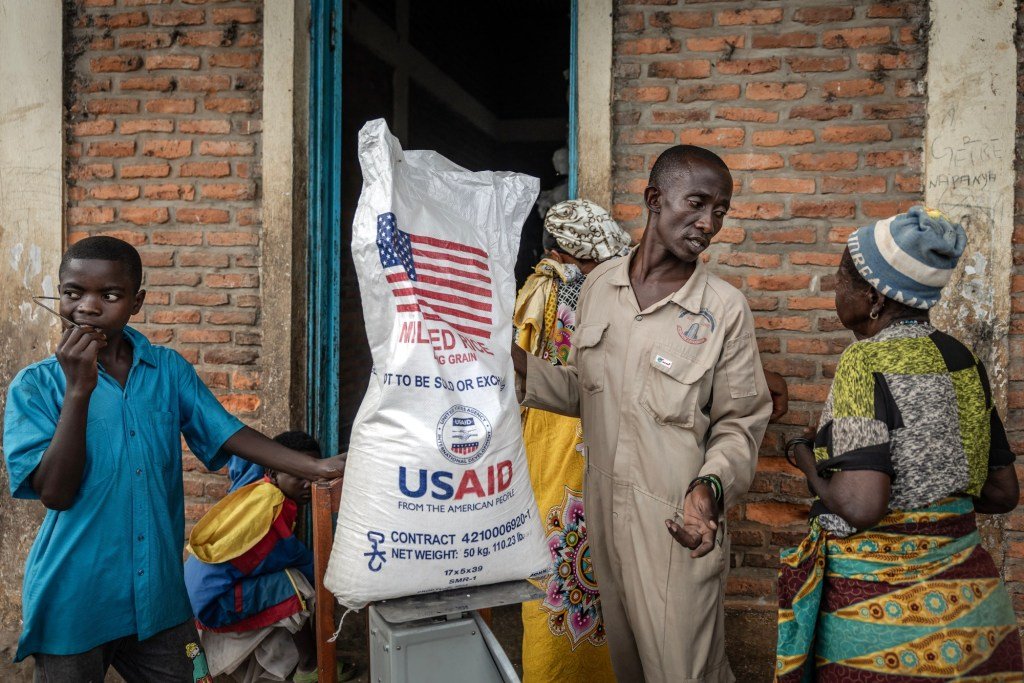Suspending Hope: The Humanitarian Crisis Unfolding in West and Central Africa
In the dusty streets of northern Nigeria, a mother cradles her malnourished child, the desperate look in her eyes a haunting reflection of the worsening humanitarian crisis. This scene isn’t isolated; it mirrors the experiences of millions across West and Central Africa, where the World Food Programme (WFP) recently announced a drastic suspension of food and nutritional assistance. The region, already struggling under the weight of conflict and climate-induced challenges, faces a more daunting reality as emergency food supplies dwindle.
The Grim Announcement
The WFP’s warning echoes through the corridors of power and aid organizations: without urgent financial support, crucial operations in several West African countries are grinding to a halt. “We are doing everything we can to prioritize the most life-saving activities, but without urgent support from our partners, our ability to respond is shrinking by the day,” cautioned Margot van der Velden, the WFP’s regional director.
This suspension primarily affects seven countries, with Mauritania, Mali, and the Central African Republic already witnessing a significant scale-back in operations. The most pressing concern is the projected food stock lifespan, expected to last until just September for many, leaving millions of vulnerable people on the precipice of hunger. “The humanitarian consequences of this cutback will be dire,” asserted Dr. Aisha Khamisi, a noted humanitarian expert. “Food insecurity here could become a catalyst for further violence and instability.”
Impacts Already Manifesting
As the WFP suspends assistance, a staggering array of statistics reveals the depth of the impending crisis:
- 300,000 children in Nigeria face severe malnutrition.
- A 178% rise in admissions to clinics was reported by the International Rescue Committee in just two months.
- Displaced individuals in Mali have received no emergency food aid since June.
- Chad’s emergency supplies are set to last only until the year’s end.
The factors driving this dire situation include an alarming rise in violent extremism, climate change, and ongoing conflict. In regions already besieged by terrorism, the suspension of food assistance may further destabilize communities. “When people face starvation, they become far more susceptible to extremist ideologies,” said Oluwole Ojewale, a security analyst at the Institute of Security Studies.
Underlying Causes: A Perfect Storm
The complications leading to this grim suspension of aid can be traced back to several interwoven crises. Conflict, particularly from jihadist groups, has dislocated millions from their homes. In tandem, growing climatic challenges have wreaked havoc on agricultural productivity, contributing to eroding food security. The Sahel region, where some countries face a total suspension of food aid by October, epitomizes these exacerbating threats.
The relationships among these forces are highlighted by a study published by the African Center for Policy Studies, which found that as hunger rises, so does the recruitment base for extremist groups. This vicious cycle poses a significant threat to regional stability: “You have a situation where poverty and despair feed into recruitment for militancy,” Dr. Khamisi noted, calling for urgent international intervention.
The Economic Fallout
The U.S. government’s decision to cut funding to agencies like USAID and, by extension, the WFP, has sent ripples through the humanitarian sector. It highlights an urgent disconnect between national policy and the on-the-ground realities faced by millions. The WFP has calculated that it will need $494 million to adequately support the second half of 2025, but current funds have been depleted. “In the absence of this funding, we face a series of catastrophic outcomes,” Van der Velden warned.
As aid diminishes, the region’s fragile economies, many already on the brink of collapse, are only expected to worsen. The U.N. predicts that the resultant humanitarian crises could destabilize entire nations, leading to mass migrations and altering geopolitical landscapes. The invisible hand of economics is forcing a harsh reckoning: “Hunger won’t just be a humanitarian issue; it will very soon become a security challenge for neighboring regions,” Ojewale added.
Eyes on the Future
As the humanitarian aid landscape transforms, it reveals profound questions about international responsibility and the collective duty of nations to address root causes of crises. Voices advocating for change assert that this is a moment for the global community to galvanize support rather than retreat into isolationism.
The children on the streets of Nigeria are not just numbers or distant headlines; they are the living consequences of political decisions made thousands of miles away. Real-life stories echo their struggles, amplifying calls for immediate, systemic change.
Ultimately, the situation in West and Central Africa is a painful reminder that the consequences of food insecurity reach far beyond mere hunger. They reverberate through the fabric of societies, challenging us all to consider what hope looks like when aid runs dry. As communities face the dual burdens of violence and starvation, the world must respond—not just with compassion, but with actions that prioritize sustainability and stability. In these critical moments, hope must not just survive; it must flourish.









